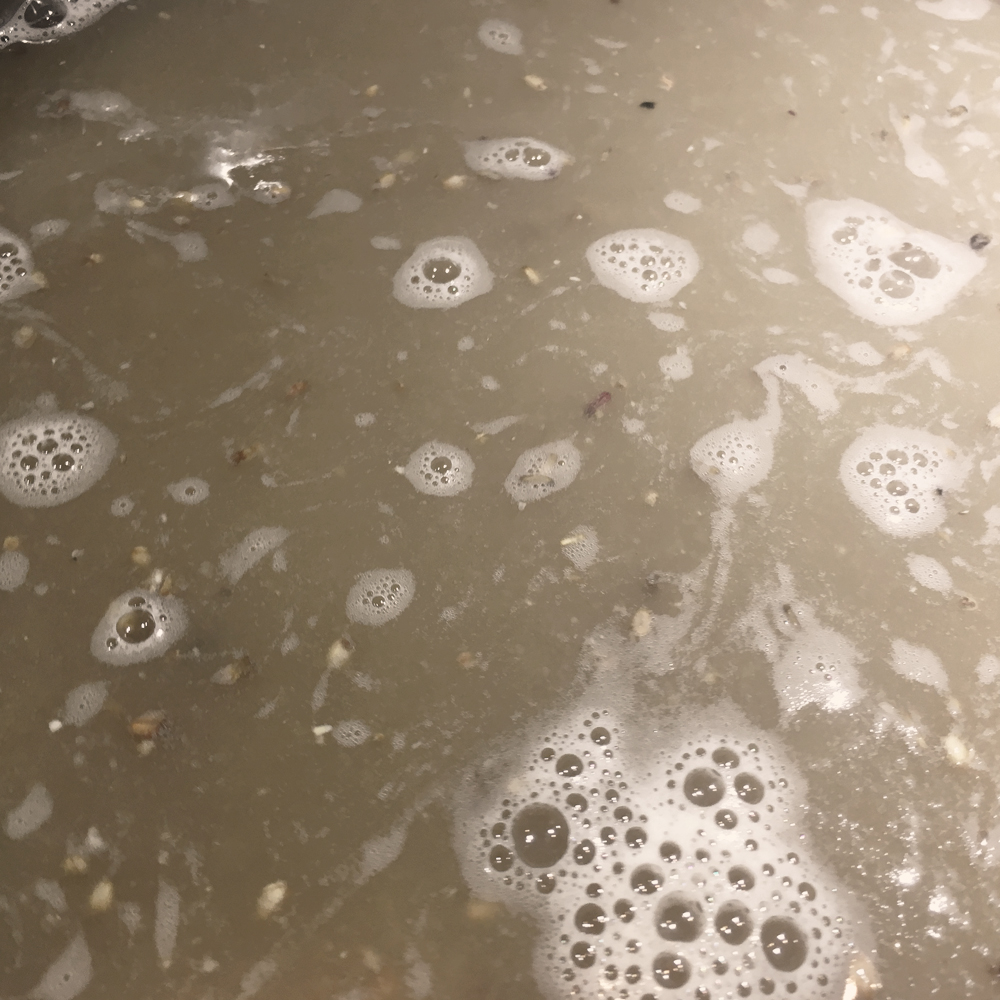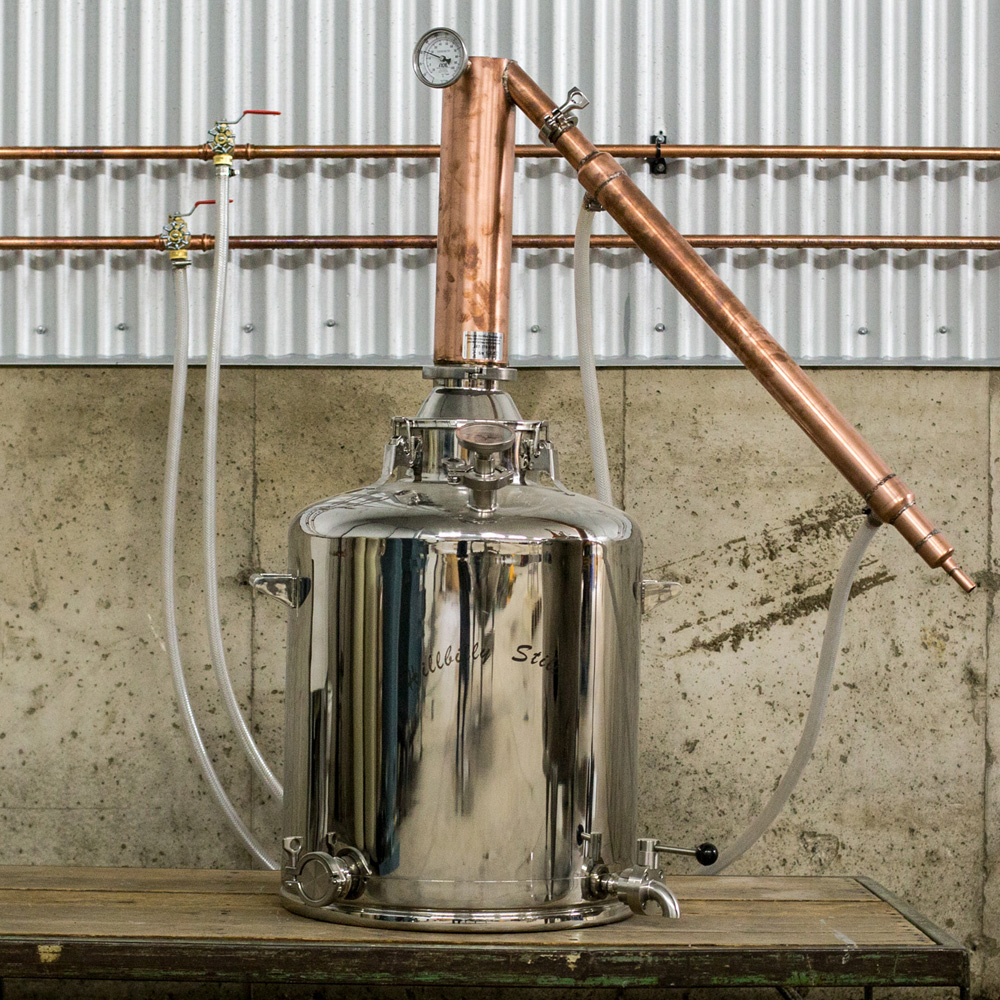Our Story
Upon relocating to the Niagara Region in 2009 from the Greater Toronto Area, Danny and I quickly became inspirited by Niagara’s vast agricultural, food and beverage culture. In 2013, while making a painstakingly slow trek through a winter storm to Blue Mountain, we began to reflect on the last four years living in the Niagara Region and how it has evolved our appreciation for quality food and beverage. During this conversation, Danny randomly blurted out his desire to one day open his very own ‘whiskery’ which would allow us to together do what we are both passionate about – crafting and creating spirits. With the snow not letting up and a lot of time ahead of us, a wishful comment sparked into a future defining conversation, directing the next five years of completely changing gears.
We built Limited Distilling as a place for us to explore, create and experiment with our recipe ideas and curiosities. We have furnished our distillery with a variety of equipment that will allow us to run it as a full on 'spirit' laboratory. Many spirit companies focus on producing a few or even a single type of alcohol that is often ‘neutral’ tasting. Limited Distilling will place emphasis on exploring a variety of products while embracing the uniqueness and characteristics of each batch. Our spirit runs will often be small allowing us to explore the use of different ingredients, both local and from around the world. We look forward to sharing with you our exciting variety of spirit creations.

Our Process
At Limited Distilling we have created an environment that allows to experiment with both traditional and modern spirit production processes. The distillery will forever be our laboratory so we have selected a variety of equipment that will allow us to explore different ways to make products. Highlighted below is our current 'primary' equipment, but as our wandering minds begin to explore new processes we will expand our tools.
Our Equipment
Currently we have the following equipment in our production area of the distillery:
- 175 Gallon (662 Liter) Still with a copper scotch column and a four-plate bubble copper column
- 26 Gallon (98 Liter) Recipe Still with both a copper pot still head and a six-plate bubble column
- 100 Liter Mash Tun
- 1589 Liter Lauter Tun
- Three 300 Gallon (1100 Liter) Cypress Wood Fermenters
Mashing
Mashing is the process of heating up the cereal based ingredients (wheat, barley, rye, corn, etc...) to break down the starch within the grain into sugars.
At Limited Distilling we have chosen to acquire both a mash tun and lauter tun so that we, as craft distillers, can create a variety of spirits. The main difference between the two is a lauter tun has a filter that allows you to remove the grain before fermentation. This leaves you with only the wort - the liquid with little to no grain. Here are some ideas as to what type of spirits will be used with each:
Mash Tun: Potato Vodka, Bourbon Style Whisky, Rye Whisky and other types of whiskey.
Lauter Tun: Vodka, Gin bases and Scotch Style Whisky. Vodka, Gin bases and Scotch Style Whisky.
Fermenting
After converting the grain to sugar the wort is put into a vessel, yeast is added and then left to 'ferment' into alcohol and with anywhere between 7% and 13% ABV.
From the beginning we knew we wanted to go with open fermenting. Although we intend on using and experimenting with a variety of commercial yeasts, open fermenting will allow our products to access wild yeasts within the air. We hope in the future that this will allow us the flexibility to begin harvesting our own yeast that is unique to us. Another benefit to open fermenting is the air lets sulfur and other unwanted compounds to readily escape rather than be re-absorbed into the wort. We have chosen to use traditional, cypress wood, open fermenters. Our fermenters were had crafted in Alabama, USA.
Distillation - Recipe Still
This specific still was acquired so that we can fulfill the needs of our wandering minds and consistently explore new ideas! The recipe still has both a copper pot still head and a six-plate bubble column. A pot still simply allows you to collect and condense alcohol vapors from your mash. Pot stills use a 'batch distillation' process, meaning that the spirit will be produced using multiple runs. This allows us to produce an alcohol with plenty of flavor, perfect for whisky and rum.
To produce a neutral tasting spirits, such as vodka or gin, we will switch the copper post still head for the six-plate bubble column. This is often referred to as a 'continuous still'. This signifies that each bubble plate acts like a single distillation. Columns essentially allow you to continuously distill instead of distilling in multiple batches like you do with a pot head. This process also provides you with a high concentrate of alcohol in one run.
At Limited Distilling we have chosen to acquire both a mash tun and lauter tun so that we, as craft distillers, can create a variety of spirits. The main difference between the two is a lauter tun has a filter that allows you to remove the grain before fermentation. This leaves you with only the wort - the liquid with little to no grain. Here are some ideas as to what type of spirits will be used with each:
Mash Tun: Potato Vodka, Bourbon Style Whisky, Rye Whisky and other types of whiskey.
Lauter Tun: Vodka, Gin bases and Scotch Style Whisky. Vodka, Gin bases and Scotch Style Whisky.
Distilling - Production Still
Similarly to the recipe still, our 175 gallon 'production still' has both a pot and column distillation option. Unlike the recipe still whereas the still heads are interchangeable, the production still set up is referred to as a hybrid pot still.
This still has a pot column at its base but also has one 4 bubble plate column. When distilling spirits such as whisky and rum, the column can be bypassed completely giving us the option to purely pot distill our spirits. However, having the option to use the 4 plate bubble column not only allows our distillery the flexibility to produce different types of spirits, but also allows us to control the specifics of distillation along the way.







